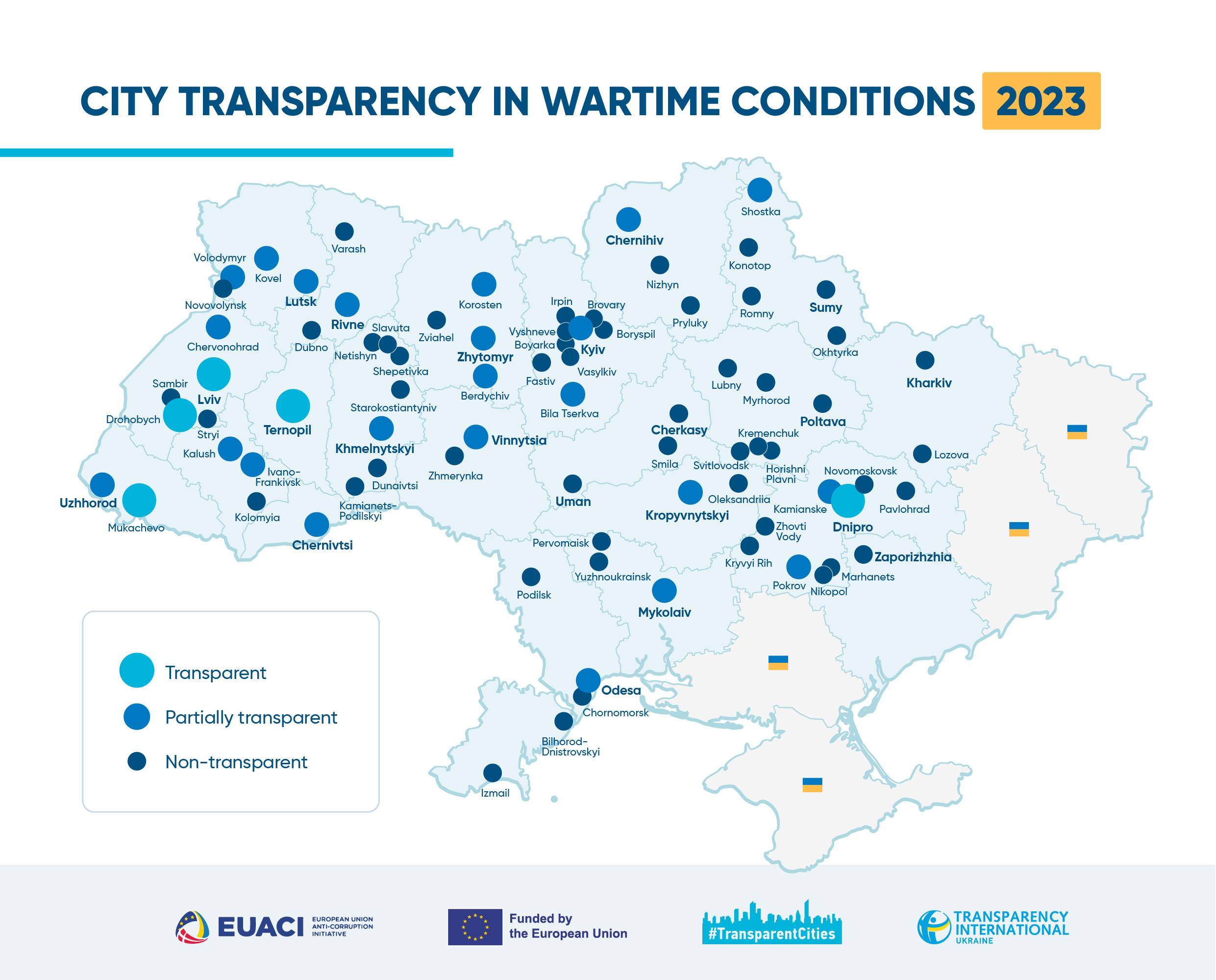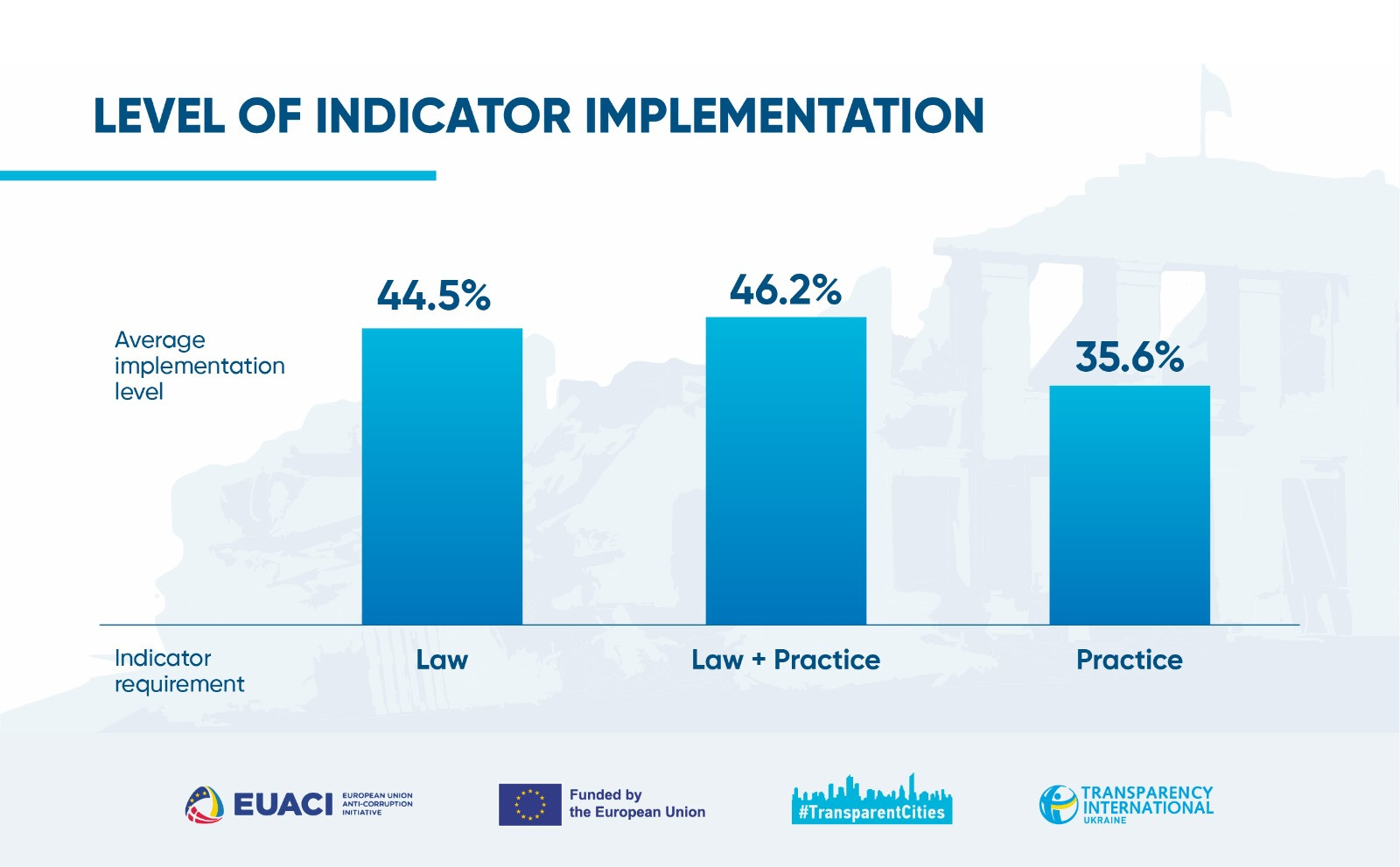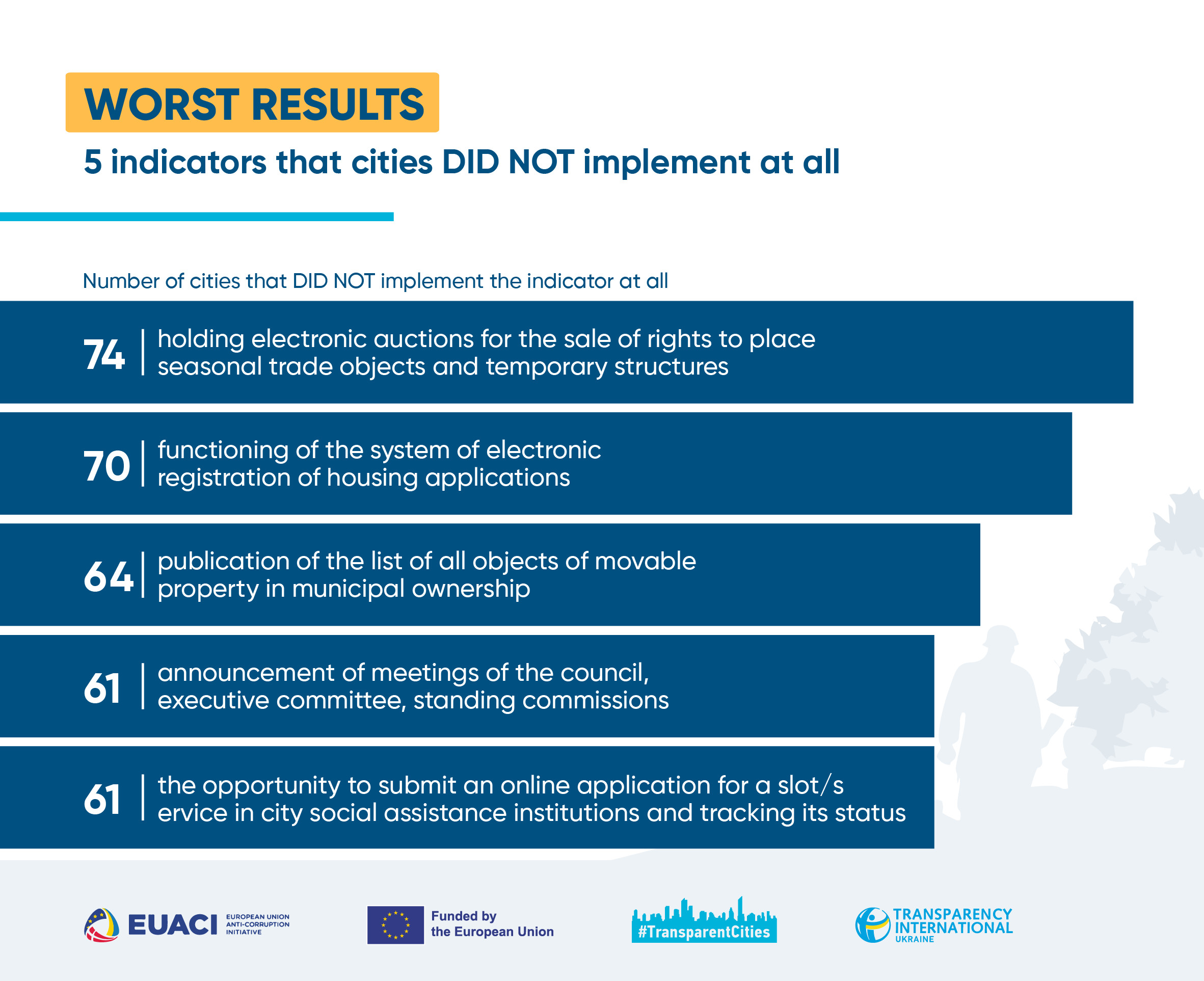The Transparent Cities Program (Transparency International Ukraine) presents the results of the second study of city transparency during the full-scale war. In 2023, analysts, apart from 70 cities, also assessed 10 municipalities close to the front line. As in the first wartime study, cities were awarded the status of transparent, partially transparent, or non-transparent instead of points.
In 2023, 5 cities became transparent: Dnipro, Drohobych, Lviv, Mukachevo, and Ternopil. 23 cities were recognized as partially transparent, the remaining 52 had the status of non-transparent.

Despite the challenges of the war, the cities managed to make some progress. The overall level of transparency in 2023 is 42.3% (50 indicators for 80 local self-government bodies). This is not much, but it is higher than in 2022. Back then, transparency was at the level of 37.5% (40 indicators for 70 cities).
Even in the most difficult of times, some cities showed a decent result. Among the 70 city councils that participated in the 2022 and 2023 studies, 30 improved their transparency levels by 5% or more. Drohobych made a considerable leap, moving from the category of non-transparent to transparent. Ivano-Frankivsk showed a similar result, having improved its performance by 31.9%. Among the 10 newly studied frontline cities, two were awarded the status of partially transparent. The average level of transparency in these cities is not significantly different from the overall transparency level of the municipalities under study (39.4% and 42.3%).
Such results confirm that it is possible to operate effectively even in wartime conditions and under constant shelling, and proximity to the front does not always become an obstacle to transparency.
Overall, in 2023, city councils responded quite successfully to the challenges of the war: they published up-to-date lists of shelters on time (61 cities out of 80), shared information about the operation of business under martial law (58 cities), and created programs for economic and social development (52). The number of cities that streamed plenary meetings of the city council has increased, and the number of issues submitted on the spot that were not previously announced has decreased.
Indicators that combine the requirements of the law and best management practices were implemented the most. However, the implementation of indicators based on legislative requirements, although slightly increased (44.0% in 2022 vs. 45.6% in 2023), remains insufficient.

Most cities — 65% — remain non-transparent. They limited residents’ access to information about the current activities of LSGBs and their decisions.
The greatest regression was recorded in indicators related to publishing the list of open data sets (the implementation level decreased by 48.6%), online registration in municipal educational institutions (decreased by 13.6%), and publishing announcements and minutes of meetings of the public commission on housing issues (decreased by 11%). Cities also continued to restrict access to open data, which significantly affected the efficiency of municipal governance.

The program provides recommendations that will help cities increase their transparency in times of the war and contribute to the successful European integration of Ukraine:
- stream or publish the recordings of meetings of the city council, the executive committee, and standing commissions within 24 hours;
- include citizens in advisory bodies (IDP Councils, commissions to consider applications for compensation for destroyed property, and public commissions on housing issues);
- publish lists of persons appointed to positions outside the competition;
- update the lists of structures intended for sheltering the population;
- ensure transparent accounting and management of municipal property and land, as well as humanitarian aid received;
- avoid restricting access to datasets (unless otherwise required by applicable regulatory acts), ensure they are in a machine-readable format.
In wartime, the transparency and openness of municipalities is of paramount importance because it has a positive effect on the efficiency of communities, helps cities overcome the challenges caused by the invasion, and contributes to improving security for citizens. Transparency is also a key to the successful post-war recovery of Ukraine and future European integration.
The database of study of city councils’ transparency in the course of the full-scale war (2023)
The project is implemented by the European Union Anti-Corruption Initiative (EUACI), a leading EU-funded anti-corruption program in Ukraine, co-financed and implemented by the Danish Ministry of Foreign Affairs. The opinions and views expressed by experts or organizations in this study do not necessarily reflect the position of the EUACI, the European Union, or the Danish Ministry of Foreign Affairs.